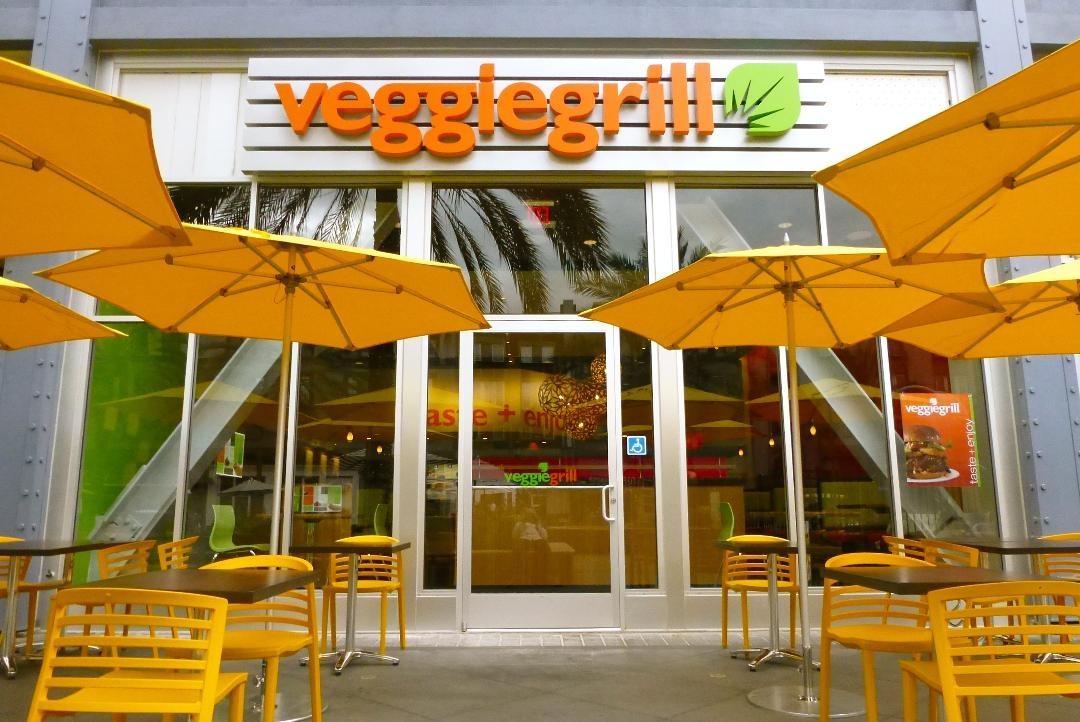In its heyday, when customers were clamoring for its vegetarian fare, Veggie Grill in early 2020 had expanded to 36 locations. But when the pandemic struck, consumers stayed home and Veggie Grill, like many start-up restaurant chains, started closing locations.
By September 2023, the condensing kept happening, and Veggie Grill was down to 17 outposts, mostly in Northern California, Seattle, Portland and Boston, less than half of its former size. While many CEOs avoid talking about downsizing locations, Veggie Grill’s CEO T. K. Pillan, one of its founders, based in El Segundo, Calif., isn’t afraid to discuss closing locations and also explaining its new path to success.
In 2021, it also had launched a separate brand, Stand-Up Burgers, specializing in plant-based burgers, to boost revenue and those have shuttered as well. “We decided to focus on our core business at Veggie Grill,” Pillan stated. He also acknowledged that it “spread itself too thin, both regionally and in launching a second brand.”
Veggie Grill always expanded by owning all of its locations, and unlike many start-ups, opting not to franchise, though that is about to change. It’s privately owned by a variety of investors including private equity firms, though Pillan declined to be specific about ownership.
A once thriving Veggie Grill has faced setbacks and closings, but is reviving, looking to franchise and extend growth.
Why Pillan Is Talking About Veggie Grill’s Closing Locations
Why, though, is Pillan open about discussing these closings, which most CEOs bury under the table or shun talking about. He replied that its fans are loyal, and “We owed it to them to be transparent about our decisions.” He said it received letters from disconsolate fans upset about the closing of their favorite Veggie Grill and needed to respond to them.
“We built our brand on transparency and that’s inherent about our attitude, trying to make a positive impact on American food culture,” said Pillan, who was raised in Newton, Mass.
Pillan emphasizes Veggie Grill wasn’t the only restaurant brand forced to shutter locations post-pandemic. “We’re not the only ones and even the best operators had to take steps back, Starbucks
SBUX
Losing the Lunch Business Hurt the Brand
One major impact that affected Veggie Grill adversely was the movement away from the office lunch trade, which hurt many of its locations in cities such as New York. Its’ eateries were based in the middle of several “office dense locations” and losing that market was a setback, he acknowledged.
But Pillan said that the clientele that gravitates toward vegetarian food is still strong, based on its “health benefits and environmental benefits. Generation Z has taken the baton on this embracing of plant-forward eating,” he stated.
Appealing to Two Different Audiences
Veggie Grill continues to attract two audiences: those who desire plant-based versions of American classics that can be replicated without meat and dairy, and those that pursue more veggie-oriented meals consisting of mushroom, tofu or tempeh dishes. “We’re trying to innovate on both sides of the plant-based equation,” he cited.
Pillan is executing a new strategic plan that includes innovating its menu and launching franchising for the first time in the third quarter of 2024. For example, he points to new menu items such as plant-based huevos rancheros and steak fajita quesadilla.
It has also decided, for the first time in its history, to explore franchising as a way to speed up growth. “The ultimate purpose of why we started was to make plant-based food accessible,” he said.
He thinks that several markets are primed to attract a plant-based clientele, that aren’t strong in vegetarian cuisine, such as Phoenix, Dallas, Houston, Miami and Atlanta. Based on Veggie Grill’s brand recognition, it will give franchisees a step up on other vegetarian rivals.
How will he able to attract franchisees who recognize that it has shuttered half of its locations? Pillan replied that “by putting them in the right locations, we can show that it works.” Several of its older locations had large dining rooms, which weren’t as efficient when its audience started to demand quick, convenient, drive-thru, pick-up and third-party delivery.
It still offers dining rooms, for those clientele who desire it, but new outposts will consist of much smaller indoor dining facilities.
Reaction from Yelp responders who visited the Veggie Grill in Pasadena, Calif. was mostly positive. Andy from Arcadia, Calif, dined there because “he was craving a burger and doesn’t want to get fat.” He found the plant-based Veggie Grill burger as tasty as the one with real meat.
Winn from Arcadia, Calif. liked the crispy sesame chicken, but found the portions a bit small. And Doreen from Temple City, Calif. likes Veggie Grill’s menu of vegan burgers, sandwiches, salads and bowls but also orders it chocolate chip cookies when she wants a treat.
What’s the formula for Veggie Grill’s future success? Pillan replied, “delivering feel-good food for those who crave it, including more nutritious whole food bowls, with great service and nice dining rooms, in the right locations.”
What has Pillan learned from the failures of the Veggie Grill that shuttered? “You have to stay laser-focused on the value proposition to consumers, and ultimately we got spread too thin, and now we’re back to being laser-focused and delivering food that people love,” he said. Hence, incremental growth is on the horizon.
Read the full article here





